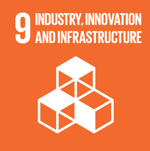Postharvest management of guava
 Colombia
Colombia
 Venezuela
Venezuela
Executive Summary
Guava is a species of tropical origin that is found in various agroecosystems of the Colombian-Venezuelan Andes from sea level to 1,800 meters above sea level. Currently, a large proportion of the fruit is produced wild in silvopastoral systems, through the work of small producers who contribute more than 80% of the family workforce and where women play a leading role. In Colombia and Venezuela there are more than 9,000 families of small producers who in different regions manage more than 15,000 hectares and generate a production whose annual value can be estimated between US$ 14 to US$ 20 million. In Colombia, this fruit supports an important rural agro-industry with more than 300 sweet factories, whose annual production is valued at US$ 21 million. In Venezuela, in addition to home consumption, it is used in the soft drinks and processed products industry.
Several institutions linked to research in the agricultural sector, such as INIA, CORPOICA and the Central University of Venezuela, have identified the critical problems related to pre-harvest and post-harvest aspects that affect the quality of the fruit, as well as those related to the use of guava in the food industry. During the three years of work, recommendations were generated to reduce the impact of the main pre-harvest factors that affect fruit quality, such as fruit fly infestation (Anastrepha fraterculus and Anatrepha striata), fungal attack, such as pestalosia. and the apical rot of the fruit. Similarly, in post-harvest, three promising materials were characterized from the physical, chemical, organoleptic and industrial points of view, to define their use and handling as fruit for fresh consumption or in the food industry.
The technological solution
Improve the performance of producers, processors and marketers of guava (Psidium guajava, L.) in Colombia and Venezuela, through the development and transfer of technological alternatives in post-harvest management according to their socioeconomic and environmental conditions.
Results
- 12 research papers related to recognition, behavior, levels of damage and methods of insect and disease control
- Development of new agro-industrial products derived from guava
- 2 publications
- 104 farms intervened
Beneficiaries
- 907 farmers and technicians
Sustainable Development Goals



Participating Organizations
Executor
- Corporación Colombiana de Investigación Agropecuaria (CORPOICA) - Colombia
Co-executor
- Instituto Nacional de Investigaciones Agrícolas (INIA) - Venezuela
Associated
- ASOHOFRUCOL - Colombia
- CORPOZULIA - Venezuela
Graphics and data
Financing by country (in USD)





























